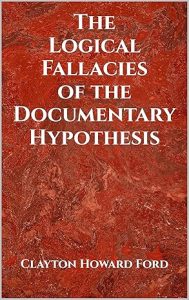In the Hebrew language, the word name carries the same connotations that it does in English. It can mean the label given to objects and people (“The name of Abram’s wife was Sarai.”); a person’s reputation (“A good name is to be chosen rather than great riches.”); or a person’s authority (“And he wrote in the name of King Ahasuerus.”). But it also takes on one additional connotation: it represents the person’s character (“Holy and awesome is His name.”). In fact, a person’s name is the person himself. To blaspheme God’s name (Lev. 24:11) is to blaspheme God. To worship God’s name is to worship God.
The Egyptians took it one step further. They believed that a person’s name was an integral part of his being. Where we might say that a man consists of his body, soul, and spirit, an ancient Egyptian would say that a man consists of his body, name, and ka (double). An inscription inside the tomb of Pepi I sees the king in his afterlife going “forward with his flesh, Pepi is happy with his name, and he liveth with his ka.” Indeed, it was impossible to live without a name. They believed that “a man only came into being upon this earth when his name had been pronounced” and that “the future life could only be attained after the gods of the world beyond the grave had become acquainted with it and uttered it.”
This belief applied to the gods as well. According to one creation story, when the creator god Neb-er-tcher began to create everything, he said, “I brought (i.e., fashioned) my mouth, and I uttered my own name as a word of power, and thus I developed myself out of the primeval matter which had evolved multitudes of evolutions from the beginning of time.” According to The Book of the Dead, the sun god Re (or Rā) was “the creator of the name[s] of his limbs, which came into being in the form of the gods who are in the following of Rā.” As E.A. Wallis Budge, the late Keeper of the Egyptian and Assyrian Antiquities in the British Museum, noted, “From this we see that all the ‘gods’ of Egypt were merely personifications of the NAMES of Rā, and that each god was one of his members, and that a name of a god was the god himself” (The Gods of the Egyptians, Vol. 2, 1904).
Conversely, blotting out a person’s name was the same as destroying that person. If anyone wished to destroy the evil power of a demon, then, in some cases, all one had to do was to make a wax figure of the demon, write its name on the figure and then destroy the figure, thereby destroying its name which was its power. To the Egyptians, therefore, the name was a real, dynamic, active, even life-giving (or life-taking) force and was thus a source of great power.
Knowing this makes it easy to see why the Egyptians came to believe that if one retained a magical or secret name, a name which no one else knew, then one retained a source of power which no one else had. However, should someone happen to learn your secret name, then that person held that power over you and could make you do whatever he or she desired. Again, this belief also applied to the gods. Each god had a secret name. Should a person happen to learn the secret name of a god, then the god would be forced by the power of magic to do whatever that person desired whenever that person spoke the name.
In a story which is a part of an Egyptian magic spell designed to counteract scorpion poison, Re is described as “abounding in names, unknown to that (god) and unknown to this (god).” Later in the story, Re himself says, “My father and my mother told me my name, (but) it was hidden in my body before I was born, in order that the power of a male or female magician might not be made to play against me.” The goddess Isis, who was especially skilled at casting magic spells, decides that she wants to know this name, and so she fashions a poisonous snake which ambushes Re and bites him. Re immediately calls upon the other gods to cure him. Isis, of course, offers to cure him, but only if he answers her one request: “Tell me thy name, my divine father.”
Viewed out of context, Isis’ request, like Moses’ question, would seem absurd because Isis obviously knows this god’s name. Even though the text does not have the words “secret” or “hidden name,” the context makes it abundantly clear that this is what she wants.
Re, too, knows she wants this name, but he is not ready to give it to her. So he recites a list of his accomplishments and then ends it by saying, “I am Khepri in the morning, Re at noon, and Atum who is in the evening.” But Isis is not fooled. She already knows those names, and besides, if his secret name had been among those he had listed, he would have recovered. But Re is still sick. So Isis says to him, “Thy name is not really among these which thou has told me. If thou tellest it to me, the poison will come forth, for a person whose name is pronounced lives.” Re finally reveals his secret name (which the author himself did not know or which he withheld from his Egyptian audience so only he would know!) and is cured.








